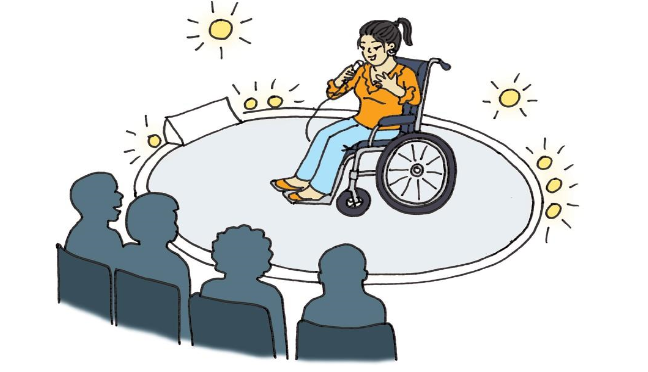Taking Charge of My Health Care
Improving the health of, and health care access for, people with intellectual and/or developmental disabilities

The Taking Charge of My Health Care Toolkit is a collaborative project between the Oregon Self-Advocacy Coalition, the Oregon Office on Disability and Health and the University Center of Excellence in Developmental Disabilities with input from expert panel members and other key stakeholders. The Toolkit is an online resource for people with intellectual/ developmental disability and those who support them. It provides information, resources and skills-building strategies for individuals to learn how to best advocate for their health and health care. The toolkit offers 12 modules on different topics that can be used for individual learning or in a workshop or group setting.

Each module includes a workbook with a corresponding worksheet, video, and PowerPoint slides that can be used to guide facilitators through conducting a workshop. Additional materials include a Leader’s Guide, supplemental handouts, fact sheets for family members and direct support staff professionals, and a variety of other related resources.
The toolkit also provides resources for disability service providers and family members who play an integral role in providing support to self-advocates. There are 18 “Health Care Fact Sheets for Parents and Service Providers” that provide information and resources on a variety of health and health care issues that are specific for people with intellectual/ developmental disabilities.
Testimonials
"I am so excited about sharing this information with self-advocates. The toolkit encourages self-advocates to speak up for themselves. It is super person centered. I love it!" said Sara Davis, Director of Supported Living with Living Opportunities.
"Good health and access to good health care is very important. We always have a choice in what we eat, how much we exercise and how to be the person we want to be. Advocating for our health care is similar, we have a choice on who our doctor is and what happens to our bodies. Anything is possible when we take charge of our health. It makes us stronger," said Eric Thompson, Oregon Self-Advocates Coalition Member.
"Some people with disabilities process differently than other people without disabilities. The Toolkit being offered in both video and written formats, helps get the message across to everyone," said Phil Stone, Oregon Self-Advocates Coalition Member.


Acknowledgements
The Taking Charge of My Health Care Toolkit includes materials updated and adapted from a toolkit developed by Australia's New South Wales Council for Intellectual Disability. It is also influenced by the Oregon Self-Advocates Coalition's original My Health Booklet and the Oregon Office on Disability and Health's Healthy Lifestyles Program.
The toolkit and its components were supported in part by the Grant or Cooperative Agreement Number DD000014, funded by the Centers for Disease Control and Prevention and by the University Center for Excellence in Developmental Disabilities funded by the Administration for Community Living Grant #90DDUC0039. Its contents are solely the responsibility of the authors and do not necessarily represent the official views of the Centers for Disease Control and Prevention, Administration for Community Living, or the Department of Health and Human Services.
Additional contributors to this toolkit include the NW ADA Center http://nwadacenter.org/
Use and Replication of Materials
Use of and/or replicating the written materials (PDFs and PowerPoints) in this toolkit is permitted without consent provided the original source is given proper citation. The contents of the toolkit may not be modified or altered without permission from the University Center for Excellence in Developmental Disabilities, ucedd@ohsu.edu. The use of the information from this toolkit for commercial purposes is strictly prohibited without written permission from the University Center for Excellence in Developmental Disabilities, ucedd@ohsu.edu.
Proper Citation
United States of America. Oregon Health & Science University. Institute on Development and Disability- Oregon Office on Disability and Health, University Center for Excellence in Developmental Disabilities and the Oregon Self-Advocacy Coalition. Taking Charge of My Health Care Toolkit, 1st edition Portland: OHSU, 2020. https://www.ohsu.edu/oregon-office-on-disability-and-health/taking-charge-my-health-care-toolkit